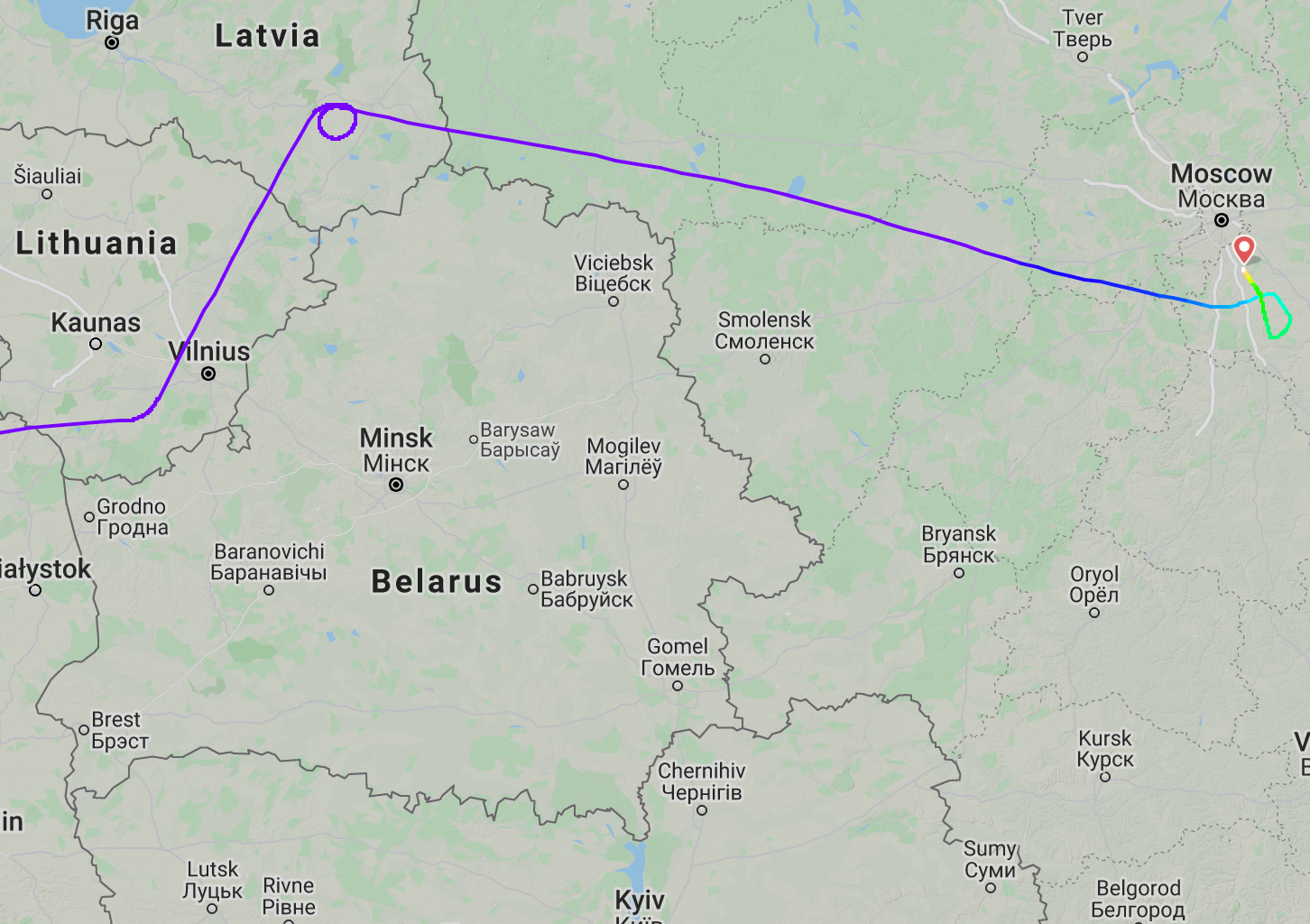Ryanair’s Belarus ‘hijack’: could Asian flights be grounded in a squabble with Russia?
‘It’s disturbing to see a government using overflying rights as a weapon’

“Airlines have plenty to do right now without getting dragged into politics,” a senior European aviation safety figure told me.
“It’s disturbing to see a government using overflying rights as a weapon.”
The government he has in mind is Vladimir Putin’s.
While the Kremlin has sided with its client state, Belarus, over Sunday’s forced diversion of a Ryanair passenger plane to Minsk, it dismisses suggestions of any direct involvement.
But Nato’s secretary general, Jens Stoltenberg, told Sky News: “It’s hard to believe that the regime in Minsk could do something like this without any kind of coordination with Russia.” And the Kremlin has certainly flexed its air-traffic muscles since Sunday, when the Athens-Vilnius flight was ordered to land at the Belarus capital.
The pilots were told of a bomb threat by air traffic control in Minsk. Even though the destination airport in the Lithuanian capital was open and just 60 miles ahead, the crew were instructed to turn 100 miles east to Minsk. On arrival, two of the passengers were arrested: Roman Protasevich – a Belarusian dissident – and his girlfriend.
The incident was described as “air piracy”. The response was swift and predictable: aviation authorities across Europe told airlines to avoid Belarusian airspace, and the state airline, Belavia, was banned from western European cities.
While this particular set of circumstances has not prevailed before, the likelihood seemed that after a few weeks or months the no-fly orders would be rescinded to allow normal air traffic to resume.
Moscow, though, appears keen to force the pace by playing hardball with its airspace. On Monday, a British Airways Boeing 777 was already in the air with a flight plan that sliced across Belarus and onwards to Islamabad in Pakistan.
After the order to avoid Belarus came through, the pilots steered north. But they were forced to hold, short of the Russian border, while a new flight plan was negotiated with air traffic controllers. So much time and fuel was used that, when permission was eventually granted to cross Russia, the plane had to refuel in Moscow before continuing to Islamabad.
By Wednesday, the airspace war had become chillier. A Paris-Moscow Air France flight was grounded, followed on Thursday by an Austrian Airlines service from Vienna to the Russian capital.
Effectively pilots were told: either you arrive at the Russian frontier through Belarus airspace, or you’re not coming in.
Friday’s Air France departure from Paris to Moscow was cancelled, but the afternoon flight from the French capital on Aeroflot flew clean over Belarus.
The Russian leadership can make life even more uncomfortable for hard-pressed airlines by rejecting any western Europe to east Asia flight plan that bypasses Belarus. On a London-Bangkok flight – for which the most direct path traverses Belarus – avoiding Russia is highly problematic. Other no-fly zones, such as over eastern Ukraine, intervene to add hundreds of miles to the journey. At a time when airlines are haemorrhaging cash, and each flight is precariously positioned between profit and loss, the extra time and fuel burn could render some trips uneconomical.
Yet it is not a zero-cost option. Russia makes a fortune from overflying rights. With the nation’s finances looking rocky, giving up a revenue stream worth thousands of US dollars per hour to make a political point may not be deemed worthwhile.
We have seen similar spats before: for around 20 weeks in 2019, Pakistan banned overflights of aircraft going to or from India, forcing carriers to adopt expensive and time-consuming routes to avoid the airspace.
Airlines are privately hoping that the Belarus overflight ban is lifted more quickly. “It is important that we have a detailed and fundamental review of what happened,” my aviation security source says. “But then we need to go back to business as usual.”
Meanwhile, 10 daily flights each way are continuing between Minsk and Moscow.
Join our commenting forum
Join thought-provoking conversations, follow other Independent readers and see their replies
Comments
Bookmark popover
Removed from bookmarks